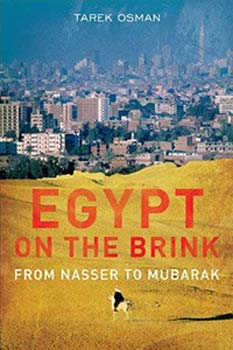Hundreds of thousands of people crammed into Tahrir Square in Cairo Tuesday demanding the ouster of Egyptian President Hosni Mubarak. Estimates of the crowd ranged from 200,000 to the organizers’ goal of 1 million people – news reports described the mood as jubilant, with protesters sensing that Mubarak would not remain in power much longer.
A flurry of reports Tuesday afternoon indicated Mubarak may announce that he will relinquish power after Egyptian elections scheduled for the fall. That may not be enough for his opponents, who want him gone immediately.
In a statement Monday night, the Egyptian Army said “freedom of expression” was guaranteed to all citizens who demonstrate peacefully. “To the great people of Egypt your armed forces, acknowledging the legitimate rights of the people,” emphasize that “they have not and will not use force against the Egyptian people,” the statement said.
The Cairo demonstration was peaceful, with the focus on driving Mubarak from office. “O Mubarak, wake up, today is your last day,” protesters said. Mubarak was hung in effigy from a traffic signal in Tahrir Square as demonstrators called for his ouster.
Despite the focus on democracy and driving Mubarak out of office, concerns remain about the Muslim Brotherhood using pro-democracy demonstrations to advance its own agenda. An Egyptian blogger called “Sandmonkey” (he describes himself as “an extremely cynical, snarky, pro-U.S., secular, libertarian, disgruntled sandmonkey”) sent this Twitter posting from the scene: “at protest. Huge number, over 100,000 ppl. Only concern is that islamists tryin to hijack it. They’re in big groups praying everywhere.”
These concerns will hardly be assuaged by statements like this one in which a Muslim Brotherhood leader dismisses secular opposition figure Mohammed El-Baradei as nothing more than a “temporary leader.”
While the Brotherhood did not take a major public role in Tuesday’s demonstration, there continues to be concern about its role in Egypt’s future. On Tuesday, London Telegraph Diplomatic Editor Praveen Swami wrote that “if Egypt does hold democratic elections, few doubt the Brotherhood will be one of the key beneficiaries -perhaps the beneficiary” because it commands resources that other opposition groups lack. These include “a network of schools, clinics and charities” and “propaganda networks which reach deep into rural Egypt.”
“There is at least some evidence that suggests that the Brotherhood’s faith in electoral politics is skin deep,” he continued. “Farag Foda, a journalist, was murdered by Islamists for his critical writings about the Brotherhood. In 1994, Nagib Mahfouz, the Nobel Prize-winning novelist, survived an assassination attempt for having written the Children of Gabalawi -a novel that featured an allegedly heretical conception of the Prophet Muhammad.” Moreover, “rabid, anti-Semitic invective” also appears on the Brotherhood’s social networking site. (He links to several examples, since taken down)
Washington Post columnist Richard Cohen cites the writings of Muslim Brotherhood luminary Sayyid Qutb to urge that American policymakers proceed with caution in dealings of the Brotherhood:
“The Islamists of the Brotherhood do not despise America for what it does but for what it is.” The Islamic state he envisioned “would be racist, anti-Semitic and anti-Christian as well. It would treat women as the Taliban does.”
“Majority rule is a worthwhile idea. But so too are respect for minorities, freedom of religion, the equality of women and adherence to treaties, such as the one with Israel, the only democracy in the region,” Cohen writes. “The dream of a democratic Egypt is sure to produce a nightmare.”

COMMENTS
Please let us know if you're having issues with commenting.